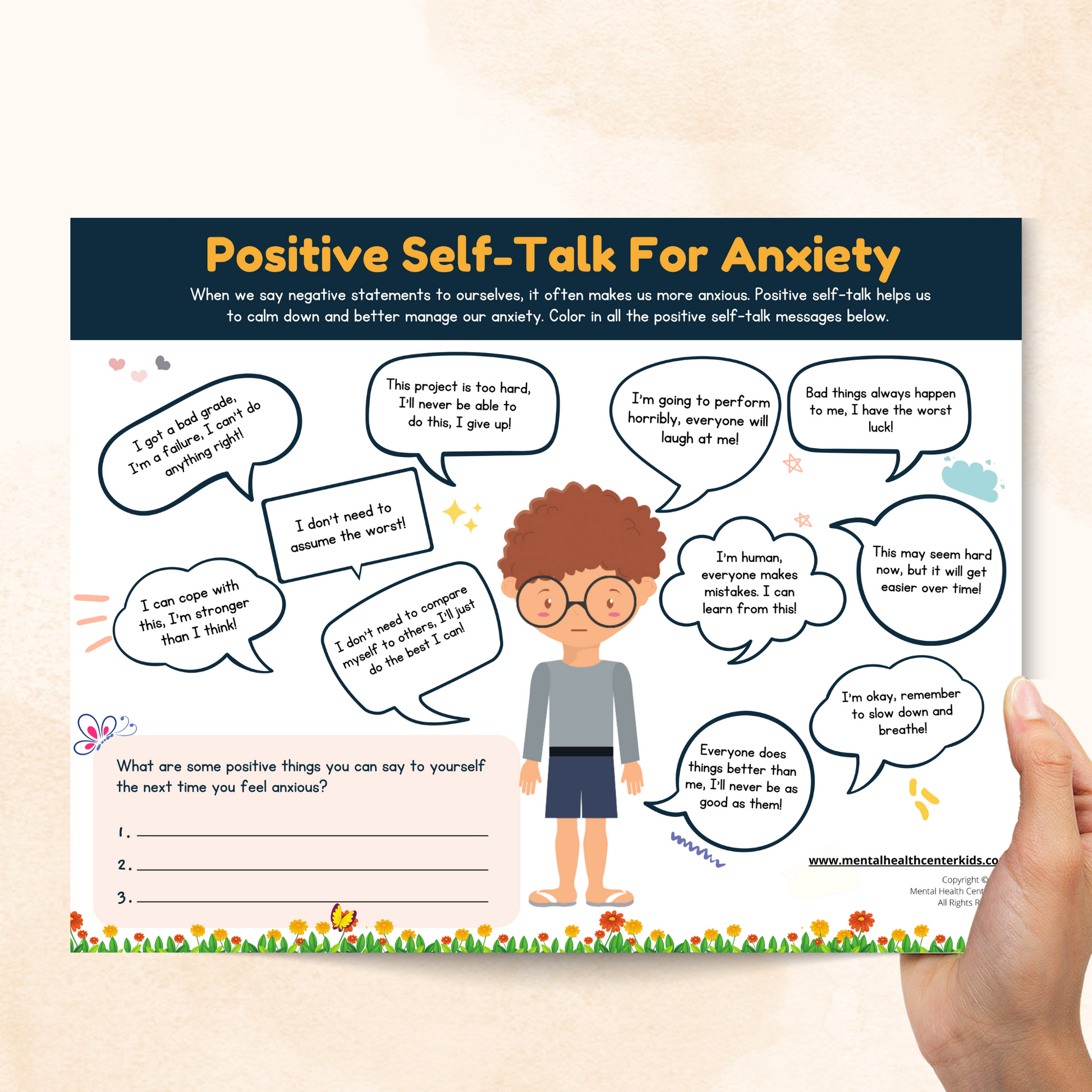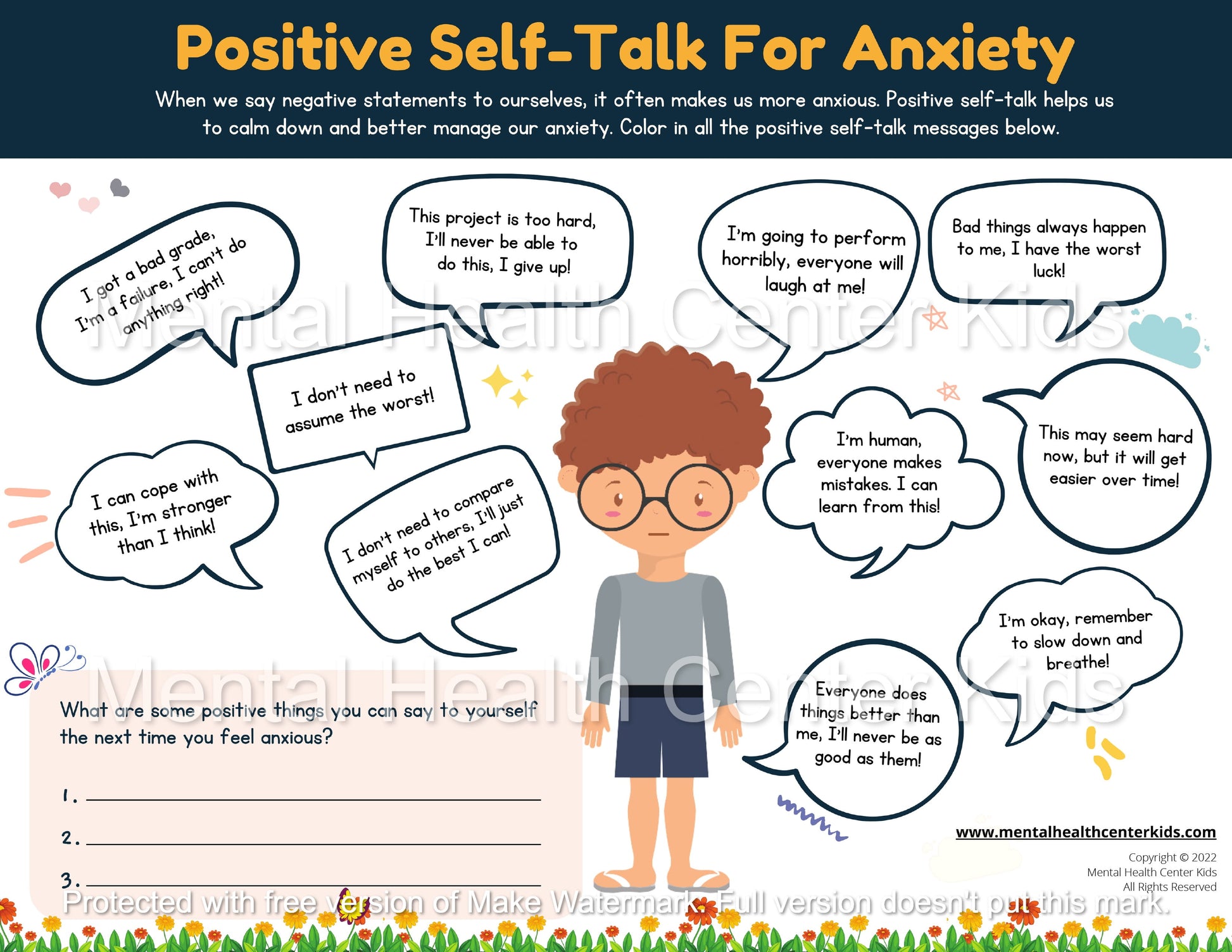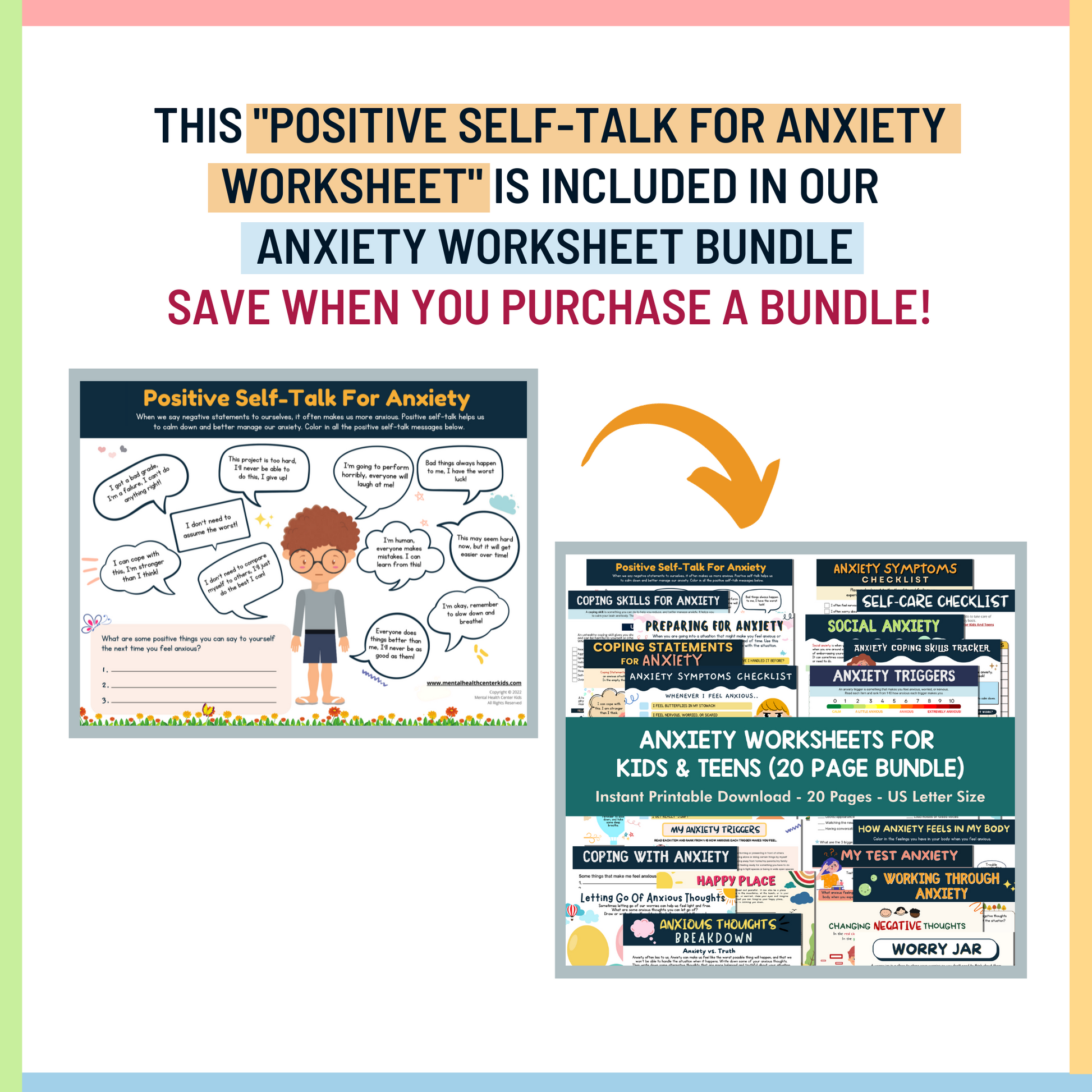Positive Self-Talk for Anxiety
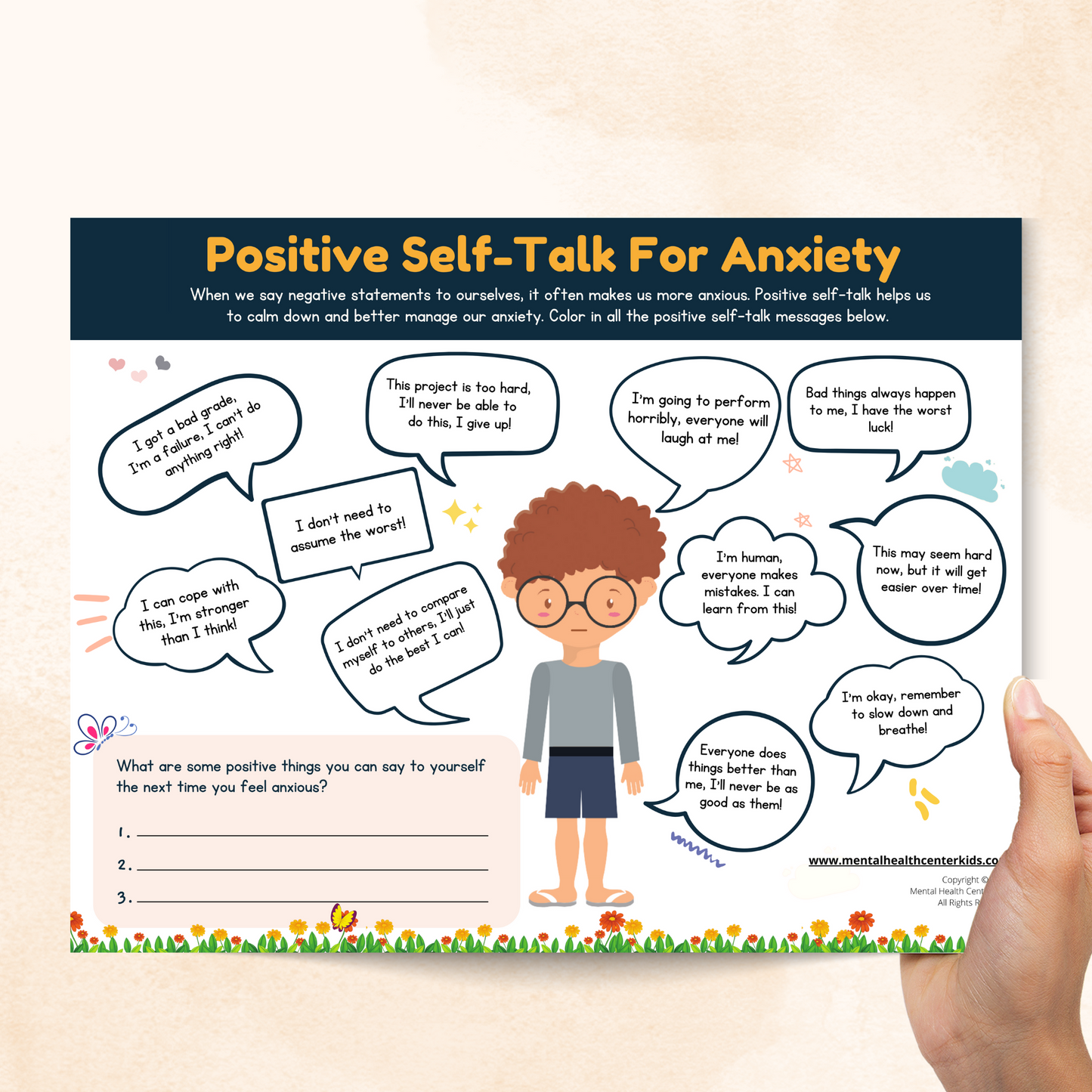
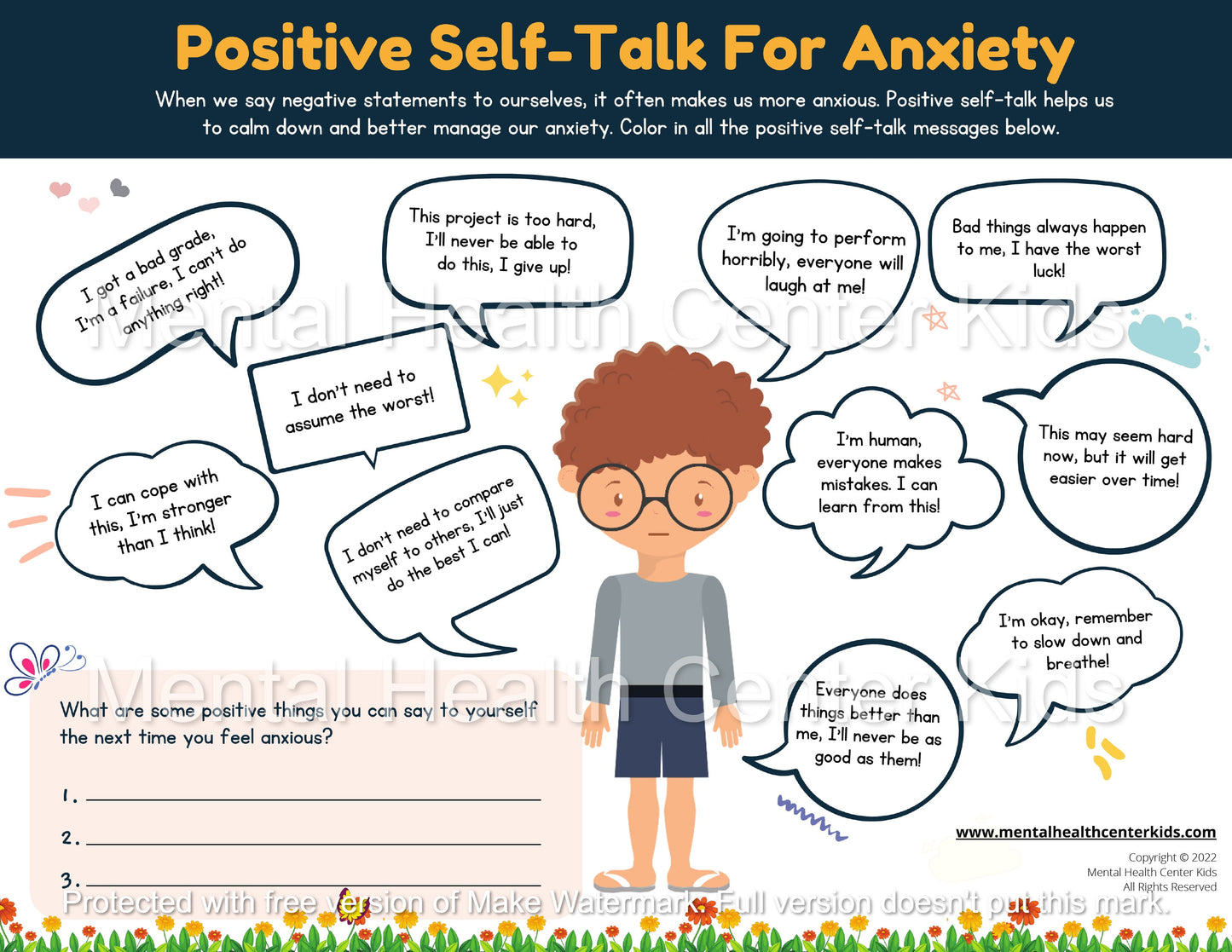
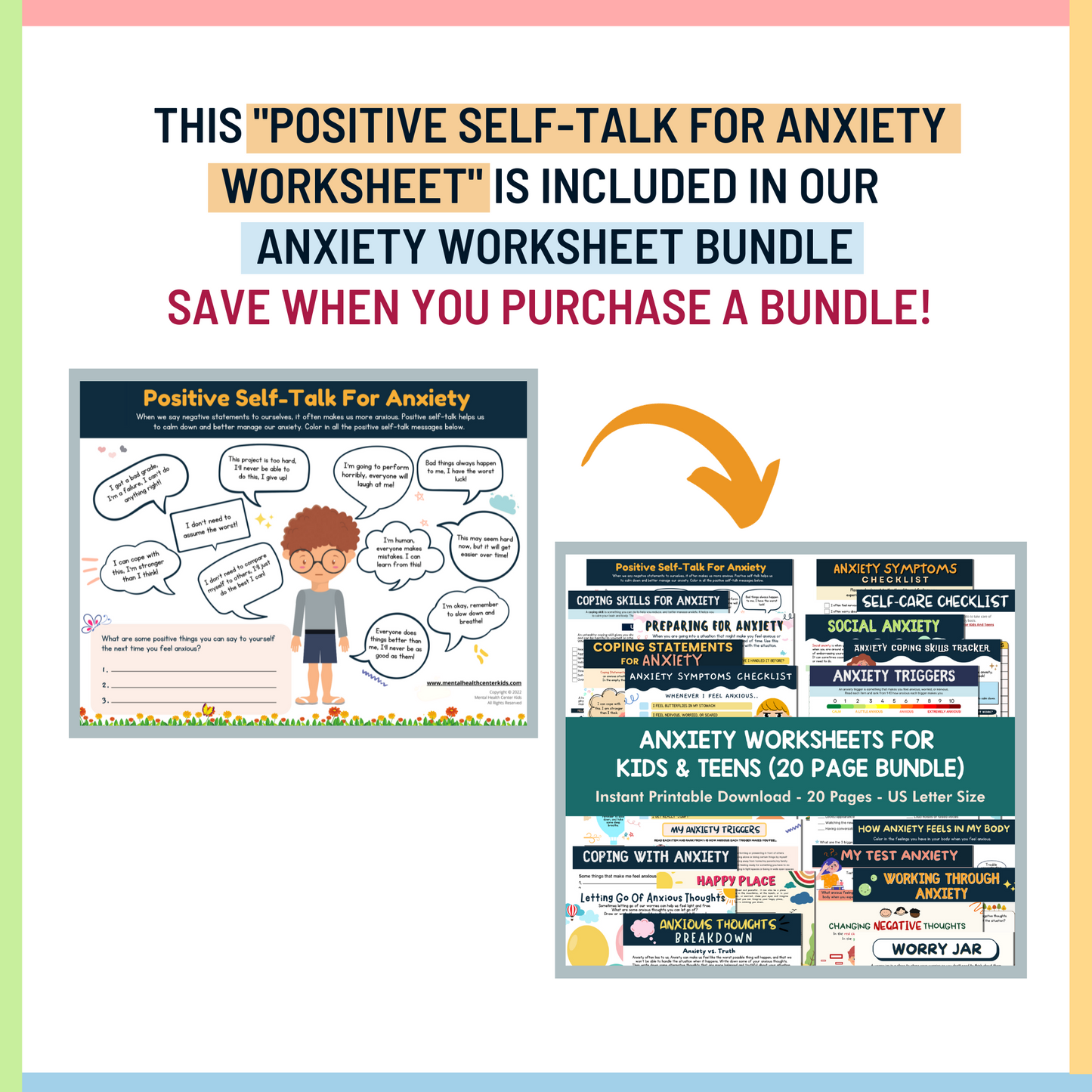

Positive self-talk for anxiety involves using affirming and reassuring statements to counter negative thoughts and calm oneself down. For kids, it means using friendly and uplifting words to remind themselves that they are brave and can handle their worries so they can feel calm and confident.
The Positive Self-talk for Anxiety worksheet asks children to spot negative thoughts and choose constructive, reassuring statements to feel more in control of their emotions and become stronger. All they need to do is color the statement bubbles with positive messages. After that, they can write their top 3 positive statements to use whenever they're feeling anxious.
By answering this worksheet, kids can feel better about themselves and change their thinking from negative to positive, which may change the way they view and approach challenges. For example, during a dance contest, a child who’s feeling overwhelmed can tell themselves, "I'm okay, remember to slow down and breathe," to stay calm and be able to loosen up.
After completing the worksheet, parents and teachers can help kids reinforce positive thoughts in their minds by using the Anxiety Coping Statements handout. They can even print these words as stickers for kids to place on their notebooks, water bottles, gadgets, or desks, making it easy for them to see these affirmations throughout the day.
*This item is an instant digital download. A link to download your files will be emailed to you once payment is confirmed.
Want more resources like this? Check out our full catalog of anxiety worksheets and handouts.
References:
- Grzybowski, J., & Brinthaupt, T. M. (2022). Trait mindfulness, self-compassion, and self-talk: A correlational analysis of young adults. Behavioral Sciences, 12(9), 300. https://doi.org/10.3390/bs12090300
- Lodge, J., Harte, D. K., & Tripp, G. (1998). Children’s self-talk under conditions of mild anxiety. Journal of Anxiety Disorders, 12(2), 153-176. https://doi.org/10.1016/s0887-6185(98)00006-1
- Treadwell, K. R., & Kendall, P. C. (1996). Self-talk in youth with anxiety disorders: States of mind, content specificity, and treatment outcome. Journal of Consulting and Clinical Psychology, 64(5), 941-950. https://doi.org/10.1037//0022-006x.64.5.941
- Instant digital download
- File: Fillable PDF
- Size: 8.5" x 11"


